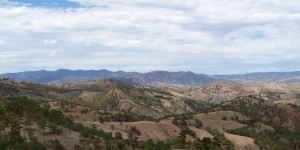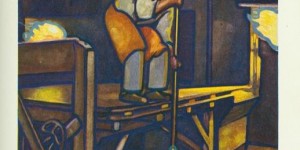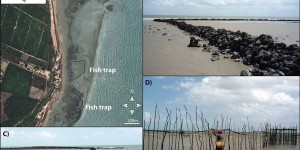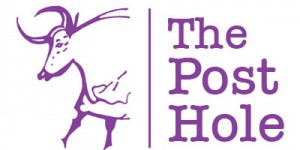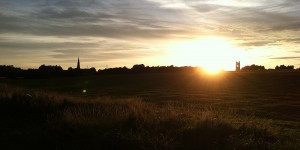For those of you who have had the pleasure of participating in archaeological excavations, you will agree that it is a unique experience filled with excitement, making friends and testing your limits. It also involves a lot of hard work but, looking back on our experiences, we realise that it was all definitely worth it.
Excavations are an inseparable part of the discipline of archaeology, and they provide young students with invaluable knowledge and experience. When an email came through about an excavation opportunity available to only four students from the University of York, it was unsurprising that we all applied straight away. The opportunity was for a month on a site in Sicily, alongside Professor Martin Carver, an internationally renowned archaeologist and director of the excavations at Sutton Hoo from 1983 to 1993. The excavation took place in central Sicily, two hours from Palermo. It involved the investigation of a Byzantine fortress, as well as uncovering evidence of the Byzantine-Islamic transition, as this was the first season of the excavation.
It has more often than not been taught in the school of archaeology that no single account of the past can present it fully or objectively. As such, here are three separate accounts from students that took part in the excavation in Sicily who were willing to share their experiences.
Dan Miller, post-graduate student at the University of York
After previously excavating at Harewood House (Leeds) and Songo Mnara (Tanzania) this excavation in Sicily was a completely different kind of experience. Only in its first season, the excavation located at Castronovo di Sicilia in central Sicily was a collaboration between the University of Rome and the University of York. We stayed at a nunnery in the heart of the town, where we each took turns to cook a communal meal, mainly cooked by the much more culinarily talented Italian students.
Under the leadership of Martin Caver (of Sutton Hoo fame) the team were split into two groups, the top site (excavating around a stone wall of a hill top fort) and the bottom site (excavating around a suspected settlement). I was working on the bottom site, where we uncovered two stone-lined child's tombs, two hearths, and a dried river bed. Although the bottom site showed significantly fewer finds, the enlightening conversations (mainly concerning Mamma Mia) made it a thoroughly enjoyable experience.
On my final day, the results of the excavation were presented to an audience in the centre of Castronovo. Seeing the genuine interest and enthusiasm from the local community filled us with pride about what we had achieved. Excavating abroad is something I feel that everyone should experience. It gives you a chance to make friends with students from other universities, to experience the local culture and heritage, and most importantly to pack the Hawaiian Tropics and top-up on that much needed sun tan.
Jasmine Lundy, undergraduate at the University of York
When I first heard about the excavation in Sicily, I jumped at the opportunity. I saw it as a great chance to gain valuable experience in a real working environment, something that I was lacking and eager to gain. And Sicily too, what a great place to visit!
During my four weeks, I learned so much more than I had expected to. Through the first year of my degree I had learnt the basics of field archaeology, but learning on the job and being able to use these skills in a hands-on way really is incredibly useful and something I would recommend to anyone. At first I was concerned that I didn't know enough, but I had the chance to do GIS surveying with Helen Goodchild, spent ten days excavating a grave, and of course got to handle the infamous Italian zaper — great anger management.
Alongside the great set of skills I have gained, working with the Sicily team has been a once in a lifetime experience, and I have met so many amazing people — Italian and English! I would love to go back and work there again, as this experience has really given me the bug to continue excavating at home and abroad. I would definitely encourage anyone to give it a go, regardless of your level of experience.
Alexandra Drosinaki, undergraduate University of York
"In archaeology the main thing is to gain as much experience as you can". This is a phrase often heard from professionals when offering advice for a successful career in the field of archaeology.
When the opportunity arose to dig in Sicily, I applied without giving it a second thought. In my mind I imagined good weather, good food and a trip to an island of Italy I had never visited before. However, I came to the realisation very quickly that this wasn't a holiday. There was a lot of work to be done, and many things to learn.
There had been various problems with the location of the excavation for different reasons. Permission to excavate on someone's land is not always easily attained. It was evident that, for a successful excavation, an archaeologist needs to have certain other abilities, such as legal knowledge and people-skills, in order to deal with this and other tenuous issues. I also noticed an understanding of the common language was desirable, if not essential, to go through with any research. Fortunately, the project leaders possessed all these qualities and were able to manage difficult situations, teaching us a lot from both within and outside the sphere of archaeology.
Ultimately, the experience you gain isn't limited to the dos and don'ts concerning the process of the excavation. It can also teach you a great deal about the use of other, different kinds of skills. Archaeology is not just excavation. And excavation is not just digging.
The experience was unique, and taught me many things needed in the real working field of archaeology which I couldn't have learnt in a lecture theatre.




